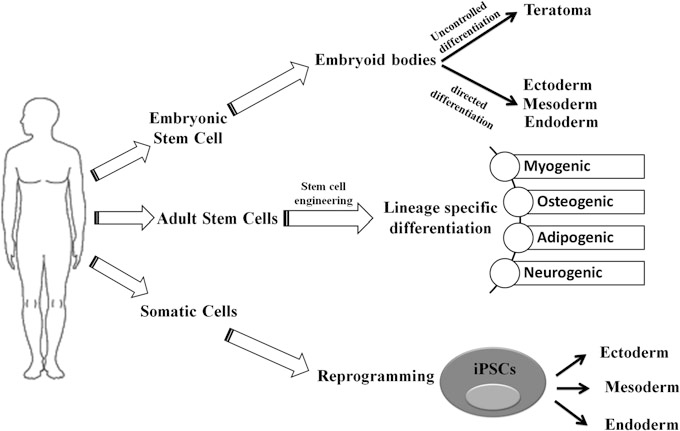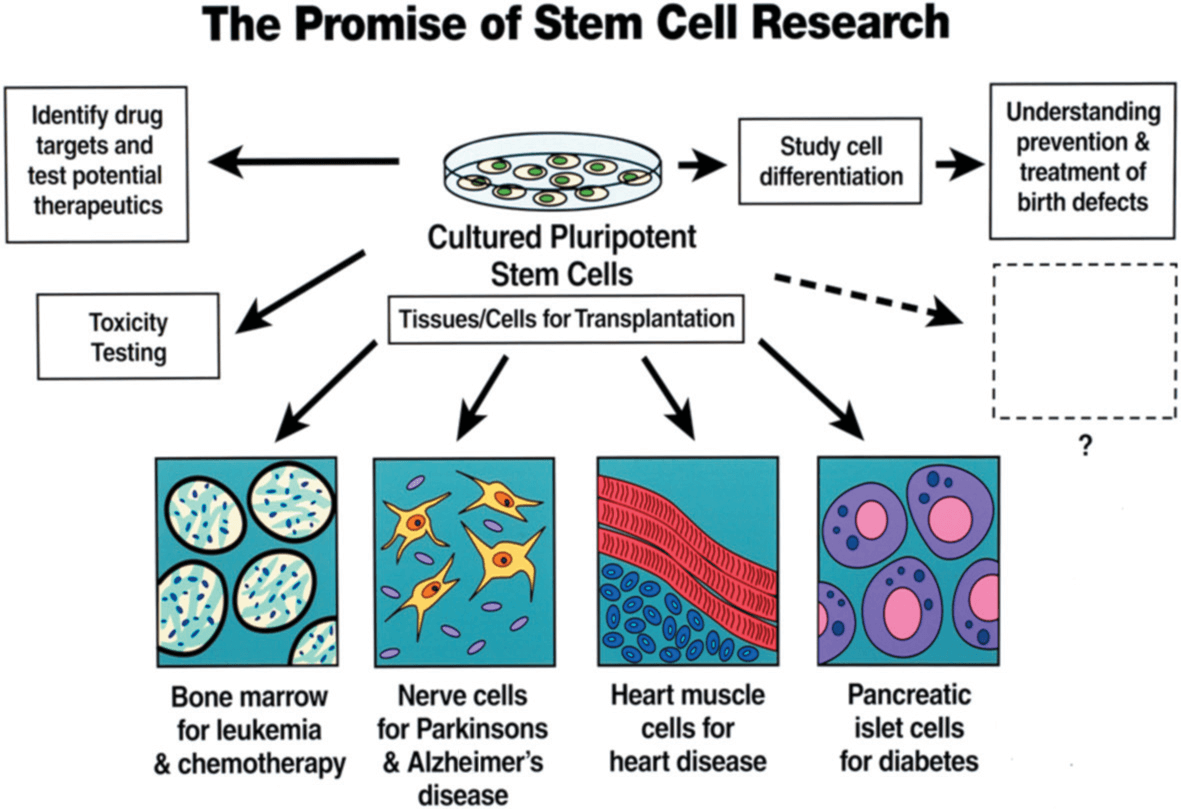Stem Cell Differentiation Services
Creative Bioarray is dedicated to providing comprehensive stem cell differentiation services to generate multiple terminal cell lineages from different kinds of stem cells. Our extensive experience in stem cell technology can help accelerate your research and drug development.
Introduction of Stem Cell Differentiation
The change of cells from one cell type to another is called cell differentiation. Stem cells are undifferentiated cells with unique self-renewal ability and can differentiate into various cell types to perform specialized functions. Stem cell differentiation involves a series of changes in cell morphology and metabolic activity. It is tightly regulated by signal transduction pathways and gene expression. This process can cause stem cells to lose some developmental potential. Stem cell differentiation occurs during development of an organism to produce new specialized cells, as well as in adults to replenish lost cells. This process plays a critical role in the repair and regeneration of damaged tissues and organs.
Stem cells can be mainly classified into embryonic stem cells (ESCs), adult stem cells (ASCs) and induced pluripotent stem cells (iPSCs) according to the basis of their resources. According to their plasticity/regenerative potential, stem cells can also be divided into totipotent stem cells that can differentiate into all possible cell types including placental cells, multipotent stem cells that can differentiate into a closely related family of cells, pluripotent stem cells that can differentiate into almost all cell types with the exception of placenta, oligopotent stem cells that can differentiate into a few cells, and unipotent stem cells that can only produce their own cell types.
Specific media and a combination of many factors are often required to induce stem cells to differentiate into specific cell types. With the development of research and techniques, standardized stem cell culture and differentiation technology will lay the foundation for biological research and future stem cell therapy.

Figure 1. Schematic representation of differentiation process of embryonic stem cell (ESC), adult stem cell (ASC), and induced pluripotent stem cells (iPSCs). (Singh R K, et al., 2014)
Applications of Differentiated Stem Cells
The ability of stem cells to differentiate into various cell types has important theoretical significance and clinical application value.
- Important tools for the study of gene function, signaling pathways and developmental biology.
- A powerful system to reveal pathogenicity of multiple diseases.
- Significant contribution to tissue repair, regeneration and organ transplantation.
- Great potential to form the basis of cell therapy and gene therapy.
- Excellent biopharmaceutical resources for drug discovery, toxicology, and drug delivery.

Figure 2. Diagram depicting the expected clinical applications of some stem cell research. (Telles P D, et al., 2011)
Our Capabilities
Our professional scientists are capable of offering a complete portfolio of services for directed differentiation of different kinds of stem cells to multiple cell types.
Directed Differentiation of iPSCs
Adult cells can be reprogrammed into induced pluripotent stem cells (iPSCs) by being forced to express specific transcription factors that are essential for maintaining the properties of embryonic stem cells. They can differentiate into all possible cell types of the three germ layer lineages in the body, such as hepatocytes, neural cells, immune cells, and cardiomyocytes.
Directed Differentiation of ASCs
Adult stem cells (ASCs) are undifferentiated cells in developed tissues, such as bone marrow, brain, liver, skeletal muscles and skin. They can generate certain cell types from their originating organs and even have the potential to regenerate the entire organ. Mesenchymal stem cells (MSCs), hematopoietic stem cells (HSCs) and neural stem cells (NSCs) are widely used adult stem cells.
Directed Differentiation of Embryonic Stem Cells
Embryonic stem cells (ESCs) are pluripotent stem cells derived from the undifferentiated inner cell mass of embryo. Their morphological structure is similar to that of early embryonic cells. ESCs can differentiate into all possible cell types of three primary germ layers, such as osteoblasts and hematopoietic lineages.
Customized Differentiation Services
If you need to start with stem cell differentiation, but there is no established protocol, our experienced scientific team has the ability to provide customized services to help generate your desired cell type.
Creative Bioarray can provide more predictive physiological in vitro models for biological and clinical research. The differentiated stem cells will undergo fully identification and well cryopreservation. We also offer a flexible customized service platform for stem cell-based research with competitive price. Specialty culture media for stem cells can also be customized in Creative Bioarray.
If you need more detailed information, please feel free to contact us. We look forward to cooperating with you.
References:
- Singh R K, et al. Stem cells: The holy grail of regenerative medicine. Engineering in Translational Medicine. Springer, London, 2014: 19-69.
- Telles P D, et al. Pulp tissue from primary teeth: new source of stem cells. Journal of Applied Oral Science, 2011, 19(3), pp: 189-194.
- van Os R, et al. Stem cell assays: something old, something new, something borrowed. Stem Cells, 2004, 22(7), pp: 1181-1190.
For research use only. Not for any other purpose.



